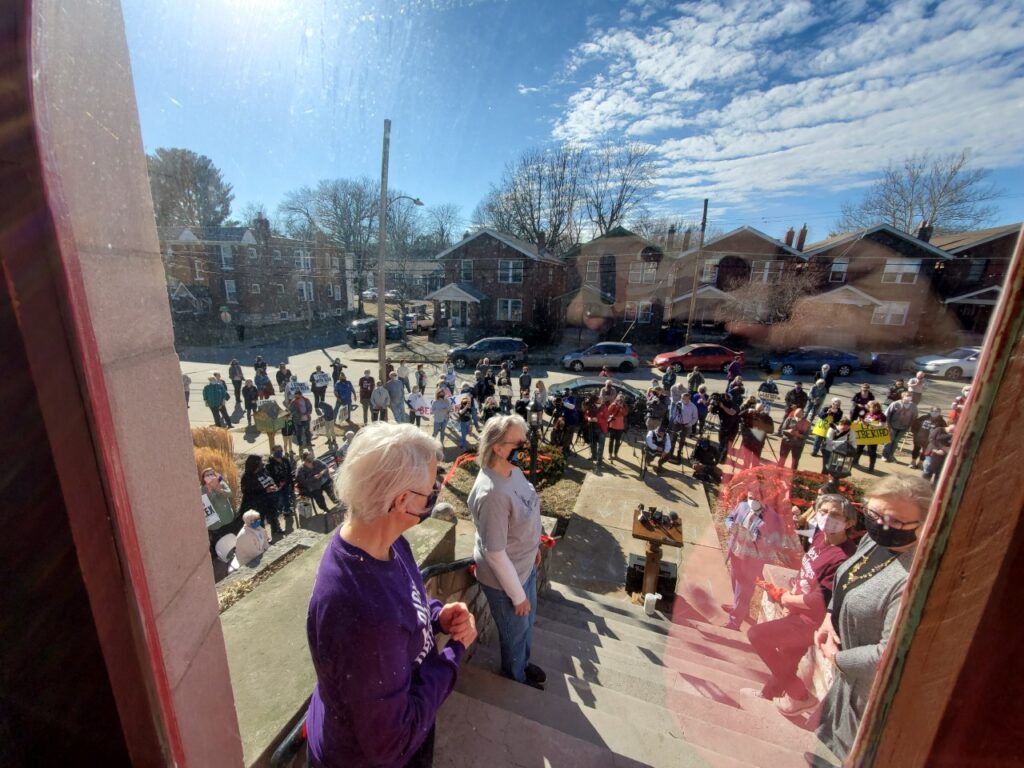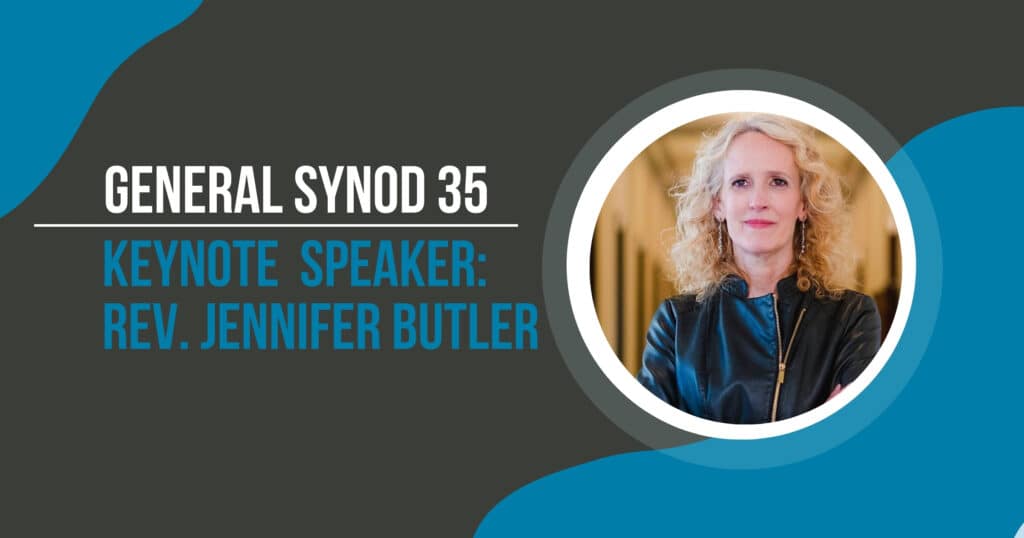National leadership changes to come before delegates
In addition to more than a dozen resolutions up for consideration at the 2015 General Synod, delegates of the United Church of Christ will also vote on a proposed change in the leadership of the national setting of the denomination. One of two sets of amendments to the UCC constitution and bylaws, this proposal would focus leadership of the church under the general minister and president, giving that individual, as chief operating officer, the authority to steer and direct the work of the national offices.
The proposed bylaw change comes from the United Church of Christ Board of Directors (UCCB), which approved the measure at its March board meeting, along with a another package of suggested bylaw revisions related to withdrawal rates from endowment funds. General Synod 2015 takes place from June 26 to 30 in Cleveland.
Elizabeth Walker, chair of the UCCB Governance Committee, said that since the changes to the bylaws were published after the board meeting on the UCC website, “a majority of the questions I have gotten have to do with the process—in other words, how did we get here? While I can go into detail about each step, I will say that God has brought us here, and we are faced with the choice of what we do now that we are here.”
The governing body of the denomination will have to make that choice. The proposal would shift leadership of the national setting from the current four-person collegium structure to one general minister and president, with the other officers of the church accountable to the GMP.
“Every part of the proposed changes are meant to implement unified governance,” board chairman the Rev. Bernard Wilson said. “It isn’t taking anything away. It affirms what the church has decided in terms of its structure to ensure the general minister and president has the authority to carry out the responsibilities we give to that person. We looked carefully at what was, and what was not, working and what needed to be tweaked.”
The changes would also do away with designating a specific executive minister for the three covenanted ministries — Local Church Ministries, Wider Church Ministries and Justice and Witness Ministries — and would leave the determination on the number of officers to the General Synod. Current General Minister and President the Rev. Geoffrey A. Black is leaving office at the conclusion of General Synod, and JWM executive the Rev. M. Linda Jaramillo is retiring in September, leaving two national officers to serve the church in addition to the new general minister and president. The Rev. John Dorhauer has been nominated for that post.
“The change in leadership structure is to recognize that we have a reduced size in the national staff,” Walker said. “It will also provide a clear direction with someone able to make decisions and set a broad direction for the national setting.”
As of December 2001, there were 254 people on the national staff, which has since decreased to 115 people today.
“It is, in some ways, completing the weaving of our church into one body, and allows changes in staffing without shortchanging any of the covenanted ministries,” Walker added. “The general minister and president is responsible for all the covenanted ministries, and must make sure all are well-led and cared for. All three covenanted ministries are foundational to who we are.”
One of the other considerations for the change in leadership structure was finance-based. Wilson said that the board and the national officers were faced with a $2.4-million deficit for the denomination’s offices in the 2014 budget, and that they worked together to bring that down and balance the budget for 2015.
“The changes we are proposing help us live within our current fiscal realities. The strength of the church is tied to both its spirituality and fiscal austerity,” Wilson said. “Financially, we are healthier than we have been in a long time, because we made tough choices about where we are fiscally. That included looking at the frequency of General Synod in living with our fiscal reality.”
The frequency of General Synod has previously been up for debate —coming up most recently in 2011 when delegates voted the proposal down. During the board’s spring meeting in March, a majority of members approved the recommendation, which eliminated the language that General Synod must be held “biennially,” replacing it with “regular intervals as established by the United Church of Christ Board.”
However, 2105 delegates won’t be asked to consider changes to the frequency of General Synod. The United Church of Christ Board decided in late May to pull a second set of proposed bylaw changes that could have altered how often the denomination’s governing body gathers.
“We thought the changes to the bylaws regarding leadership structure and endowment processes were more important, so we took the changes to General Synod off the table,” said Wilson, who concludes his service to the board at the conclusion of General Synod. “It’s a possibility that the board could [bring the topic up] at another time, but we aren’t doing that at this time.”
Constitution and bylaw revisions require affirmation from two-thirds of the voting delegates at General Synod, and then need approval from two-thirds of the 38 conferences of the UCC.
“The board is trying to live into the mandate it received from the General Synod,” Wilson said, “to be nimble and make decisions like this.”
Related News
‘Welcoming immigrants in our midst’: New resources for churches in the wake of policy changes
It has been a long practice of churches to open their doors to immigrants faced with threats...
Read MoreGeneral Synod 35 keynote speaker is a minister at the intersection of faith and civic engagement
The keynote speaker for this summer’s General Synod 35 is a faith-based activist and author...
Read MoreLove is Louder in February: UCC ministries offer new resources, invite submissions to spread love ‘out loud’
February is often thought of as a month of love, as Valentine's Day is celebrated and lovers...
Read More


